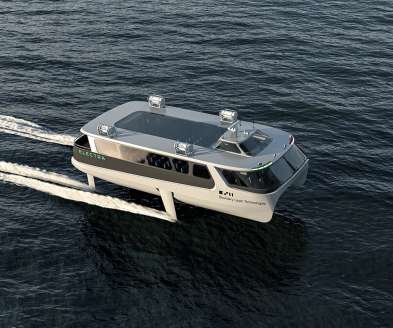Boundary Layer Technologies reveals ELECTRA all-electric hydrofoiling ferry concept
Green Car Congress
OCTOBER 31, 2021
Compared to fossil fuel alternatives, ELECTRA’s battery-electric propulsion significantly reduces cabin noise by up to 20dB compared to conventional ferries. It’s foiling system also offers excellent seakeeping and ride comfort.












Let's personalize your content